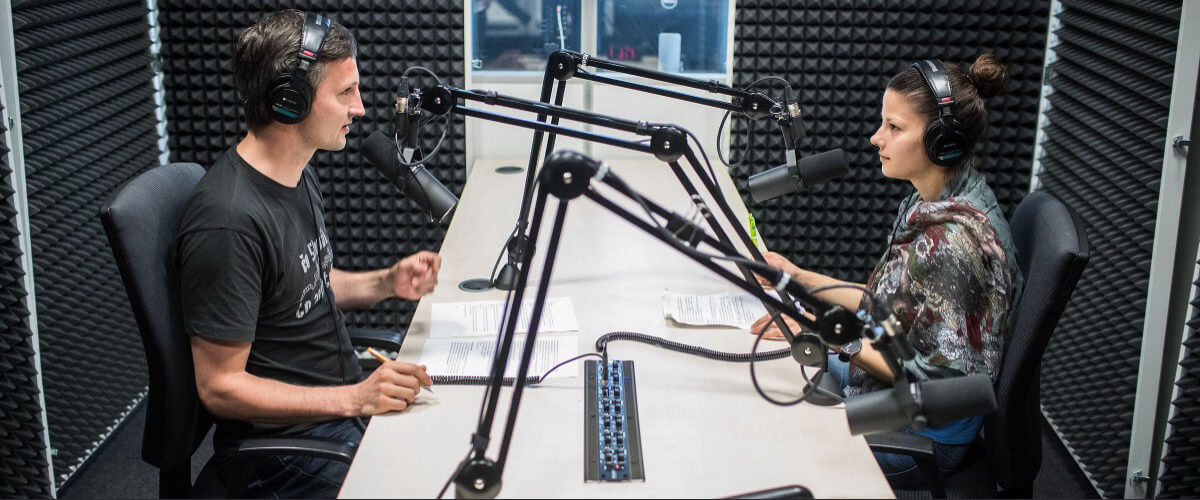Many podcasters come across the question of how long a podcast should be. But, you cannot find any hard and fast rules on how to choose an ideal length for a podcast, but most of them range from 15-30 minutes in length.
Shorter podcasts may be more accessible to listeners with limited time, while longer ones may be more suitable for in-depth discussions or interviews. In general, 30 minutes give you enough time to explore your topic in depth without losing listeners’ attention.
Ultimately, it is up to the podcast creators to determine the best length for their show.
What should be considered when determining how long a podcast should be?
When determining how long your podcast should be, you should consider the following factors:
How often will you be releasing new episodes
If you are releasing new episodes every week, then each episode should be around 30 minutes to 1 hour long. It will give you enough time to cover all the essential points without losing your audience’s attention.
If you release new episodes more than once a week, each episode can be shorter, around 15-30 minutes. This way, your audience won’t get overwhelmed with too much content and will be more likely to tune in for future episodes.

The amount of content you have to cover
When deciding on the length of your podcast, also consider the content you have to cover. If you only have a few topics to discuss, then a shorter episode might be best. However, if you have a lot of information to share, a more extended episode might be necessary.
The attention and time span of your audience
Ultimately, think about your audience and what they might want or need in terms of length. For example, if your podcast is aimed at busy professionals, you might want to keep it reasonably short, so they can easily fit it into their schedules. On the other hand, if your target audience is hobbyists or people with more free time, you might be able to get away with a longer podcast.
The best way to determine how long your podcast should be is to experiment and see what works best for you and your audience. Start with a few episodes of different lengths and see which ones get the most listener engagement. Then, you can adjust the length of future episodes accordingly.
Benefits of short and long podcast episodes
Podcast episodes can be either short or long, and each has its benefits.
Short episodes are great for busy listeners who want to be able to consume content quickly and easily. Besides, they are easier to produce and can be more focused on a single topic. They’re also ideal for promoting new content since listeners can quickly get a taste of what the podcast is about without having to commit to an extended episode. Additionally, it’s less likely that listeners lose attention when listening to shorter podcasts and are more likely to be shared or downloaded.

Long podcast episodes, however, allow for a more in-depth exploration of topics and provide listeners with a richer experience. They’re perfect for dedicated fans who want to explore the subjects they love. Besides, longer episodes also allow listeners to get to know the hosts better and feel like they are part of a community.
No matter what length you choose, ensure your episodes are engaging and informative to keep your audience coming back for more.
Should all podcast episodes be the same length?
Not necessarily; no rule says all podcast episodes have to be the same length. Some podcasters mix things up and release episodes of varying lengths. On the other hand, many people argue that keeping the same time frames is better because it helps listeners know what to expect from the show. If each episode is around the same length, listeners will know how long they need to set aside to listen to the show.
Depending on the topic, guest, and format of the show, episodes can be anywhere from a few minutes to an hour or more in length.
For example, the episode will likely be longer if the guest is engaging and has a lot to say. On the other hand, if the guest is less talkative or has less to say, the episode will be shorter. The same situation with a host. If the host talks a lot, the episode will be longer.
As for the format, it also influences the episode length. For example, if a podcast episode is part of a series, it usually needs a certain length to fit into the series’ release schedule. For example, suppose a podcaster releases new episodes every Monday, Wednesday, and Friday. In that case, each episode should likely be around 20-30 minutes so that it can be released on time and keep the format.
Besides, if a podcast is focused on interviews, it may be shorter in length than a narrative-based podcast.
We are supported by our audience. When you purchase through links on our site, we may earn an affiliate commission at no extra cost to you.
Our newsletter
* We will never send you spam or share your email with third parties












